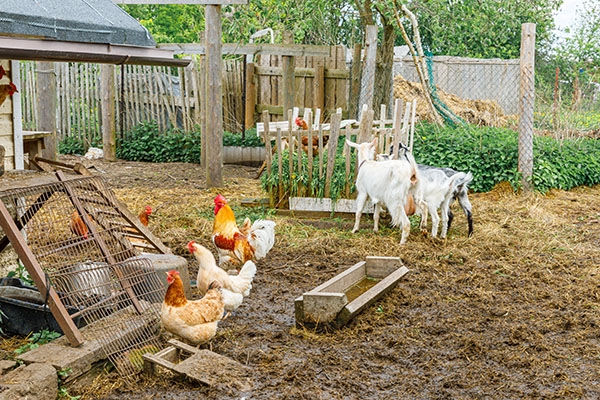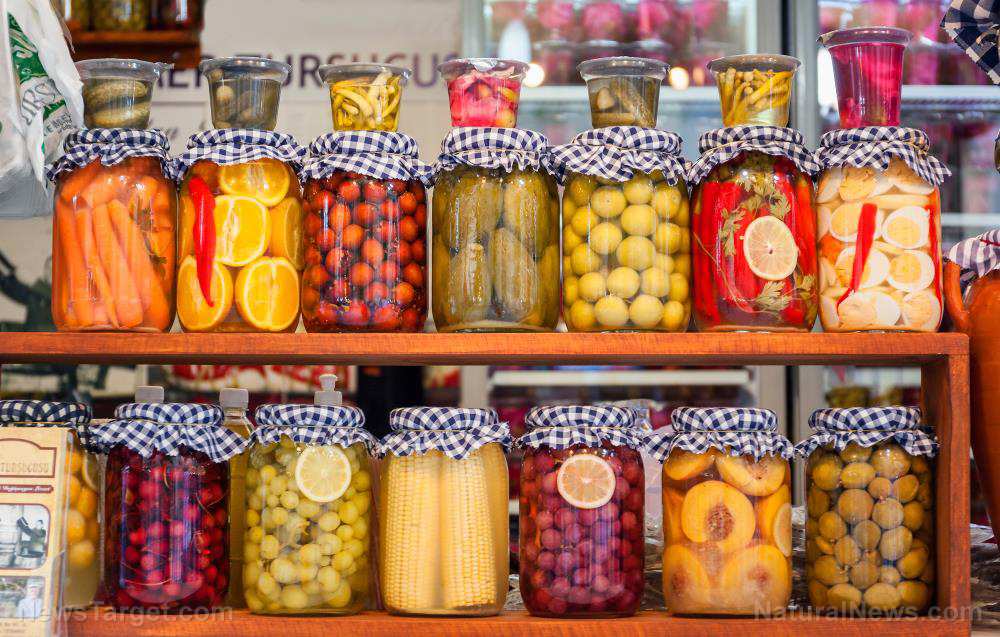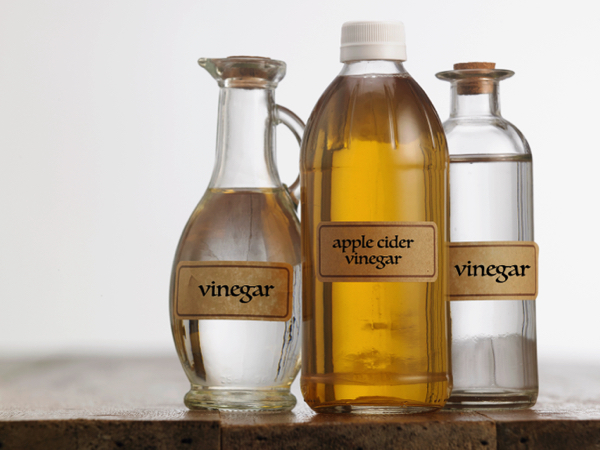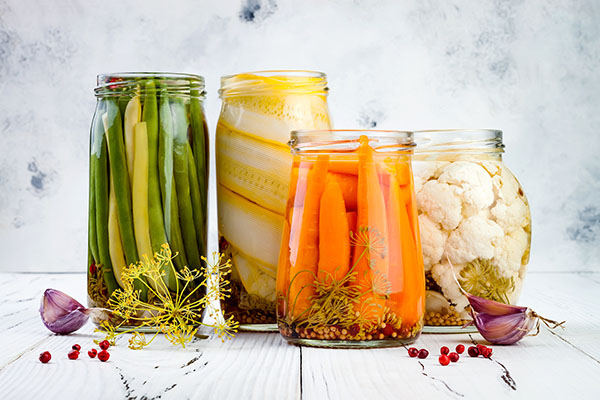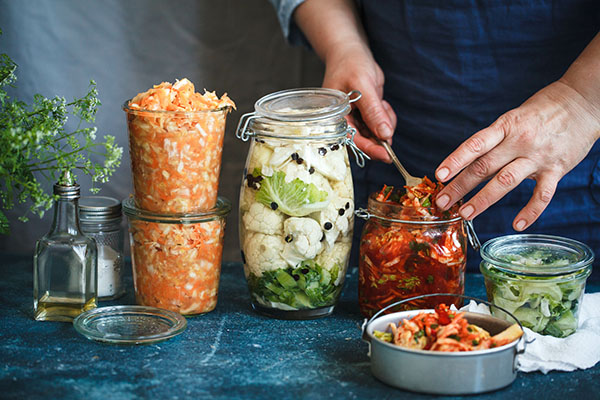9 Compelling reasons to steer clear of gluten
11/06/2024 / By HRS Editors

People with celiac disease or those with gluten allergies or sensitivities follow a gluten-free diet to avoid serious health issues. But a gluten-free diet can also benefit those who want to support their overall well-being, such as increasing energy levels or supporting digestive health. (h/t to Healthy.co.nz)
Gluten is a structural protein found in certain cereal grains, such as barley, rye and wheat. This protein is also responsible for the unique texture of different foods people consume daily.
Gluten is a combination of prolamin and glutelin, two proteins that form a sticky network when mixed with water. This protein matrix gives dough its elasticity, which in turn allows it to rise, maintain its shape and achieve the soft, chewy texture that is common in bread and baked goods.
It is important in baking because it gives strength and structure, acting as a natural binding agent that holds food together.
How does gluten affect your body?
The effects of gluten may vary depending on someone’s health and immune responses.
Generally, gluten is harmless and easily digested as part of a balanced diet. However, some people may experience serious health issues if they consume gluten.
Celiac disease
If you have celiac disease, consuming foods that contain gluten triggers an autoimmune reaction that will damage your small intestine.
This damage then negatively affects nutrient absorption, which can cause adverse symptoms like diarrhea, fatigue and weight loss. Over time, damage to your small intestine and the associated symptoms may cause severe health problems like anemia and osteoporosis.
You can effectively manage celiac disease by following a strict gluten-free diet.
Non-celiac gluten sensitivity (NCGS)
Sometimes, people may experience bloating, digestive discomfort or other symptoms after eating gluten. But they don’t have celiac disease. This condition is called non-celiac gluten sensitivity (NCGS).
The underlying cause is not fully understood, but if you have NCGS, you will usually feel better if you follow a gluten-free diet even if you test negative for celiac disease.
Wheat allergy
Unlike celiac disease and NCGS, a wheat allergy involves an allergic reaction to proteins in wheat, which may or may not include gluten.
Wheat allergy symptoms can include mild reactions like itching and hives or severe cases such as anaphylaxis or difficulty breathing. If you have a wheat allergy you should avoid all wheat-based products.
You may still tolerate gluten from other sources like barley or rye. (Related: Food safety alert: Many gluten-free foods are contaminated with glyphosate and other agrochemicals, tests reveal.)
Benefits of going gluten-free
A gluten-free diet is essential if you have celiac disease or gluten sensitivity. But even if you don’t have these conditions, going gluten-free may offer some benefits for your overall health:
Helps reduce brain fog
Gluten sensitivity can impair cognitive function, which can then cause brain fog. Going gluten-free can help boost mental clarity and concentration.
Helps increase whole food intake
Following a gluten-free diet means you will be replacing processed foods that contain gluten, such as junk food and fast food, with fresh fruits and vegetables along with lean proteins, which means you are significantly improving your regular diet.
Eliminates processed foods from your diet
Following a gluten-free diet means you may also avoid heavily processed foods, which are usually full of additives, preservatives and unhealthy fats, resulting in a balanced and cleaner diet.
Supports digestive health
If you suffer from gluten sensitivity or intolerance, going gluten-free can help improve your digestive health and reduce symptoms like constipation, diarrhea or stomach discomfort.
Helps boost bone health
Those with gluten intolerance, particularly people with undiagnosed celiac disease, may experience nutrient deficiencies that weaken bones. Going gluten-free can help improve nutrient absorption and improve bone density.
Helps boost energy levels
Many people following gluten-free diets have reported that they feel more energetic after eliminating gluten. This may be because the body isn’t using up energy to deal with gluten-related inflammation or digestive issues.
Helps reduce the frequency of headaches
Many individuals who are sensitive to gluten get frequent headaches. Following a gluten-free diet can help reduce the intensity and frequency of migraines or other headaches.
Helps relieve joint pain
It has been suggested that gluten may be linked to inflammation, which can exacerbate joint pain. Going gluten-free can help relieve arthritis-like symptoms, especially if you have autoimmune issues.
Helps reduce bloating
Gluten can cause water retention and gas in those with gluten sensitivity. Going gluten-free may help relieve bloating and reduce painful abdominal swelling.
Where to find lab-verified gluten-free ingredients
The Health Ranger Store is here to ensure that you can easily find a variety of gluten-free products and ingredients.
That’s why we’re proud to offer many clean, lab-verified, gluten-free and healthy food options such as Organic Freeze-Dried Beet Juice Powder, Organic Cocoa Energize and Organic Heavy Cream Powder.
Also known as beetroots or blood turnips, beets are the bright reddish or purplish taproots of the Beta vulgaris plant. Considered as one of the world’s healthiest vegetables, beets are loaded with vitamins, minerals and antioxidants that support overall health and well-being.
Groovy Bee® Organic Freeze-Dried Beet Juice Powder contains fresh, pure beets grown under strict organic standards by our trusted suppliers. Because it is entirely water-soluble, our gluten-free and organic beet juice powder can easily be added to shakes, smoothies, juices and other beverages for a flavorful nutritional upgrade.
Groovy Bee® Organic Freeze-Dried Beet Juice Powder is gluten-free, vegan, non-GMO, non-China and certified Kosher and organic. It also contains no artificial colors or flavors and is meticulously lab-tested for glyphosate, heavy metals and microbiology.
You can also try Organic Cocoa Energize, which is specially formulated to support your health and fuel you throughout the day.
Groovy Bee® Organic Cocoa Energize is a nutritious and delicious powder blend that offers the wholesome goodness of organic cocoa powder, organic maca root powder and seven organic functional mushroom powders. It is loaded with antioxidants and slightly sweetened with low-glycemic organic coconut sugar, one of the best low-glycemic sugar substitutes on the planet.
Groovy Bee® Organic Cocoa Energize is gluten-free, non-GMO, plant-based and certified Kosher and organic. It is also extensively lab-tested for glyphosate, heavy metals and microbiology.
Lastly, you can try organic heavy cream. This useful and tasty ingredient has been used all over the world to add creamy flavoring and nutrition to dishes and recipes. However, traditional heavy cream has a very limited shelf life and does not last very long.
It can easily go bad if not immediately refrigerated, making it very difficult to store for a long time in case SHTF. To extend the shelf life of organic heavy cream powder, it can be carefully dried and turned into a versatile and convenient powder.
The Health Ranger Store is here to help you add more variety to your long-term storable survival food options, which is why we’re thrilled to introduce our new organic heavy cream powder in long-term storable #10 cans for your survival pantry.
Made with high-quality organic cream and organic non-fat dry milk, our new Health Ranger Select Organic Heavy Cream Powder is a highly versatile and delicious ingredient that contains plenty of protein, calcium and other nutrients. A survival cache must-have, this convenient and portable powder allows you to enhance your meals with a creamy taste even during SHTF scenarios when condiments might be scarce.
Available in handy eight-ounce pouches and long-term storable #10 cans, our Health Ranger Select Organic Heavy Cream Powder contains no gluten or GMOs and is non-China and certified organic. It has also been thoroughly lab-tested for glyphosate, heavy metals and microbiology.
Visit the Health Ranger Store and Brighteon Store to find more clean food products for your stockpile. You can also check out Organics.news to learn more about the benefits of eating gluten-free and organic food.
Click on this link for a tasty recipe for Gluten-Free Granola Bars with Nuts and Seeds.
Watch the video below to learn more about the health-supporting benefits of Organic Cocoa Powder.
This video is from the Health Ranger Store channel on Brighteon.com.
More related stories:
Amish foods that you need in your survival stockpile.
10 Compelling reasons to steer clear of gluten.
Make your harvests last longer with these timeless food preservation techniques.
Gluten-free diets: Can people with celiac disease eat oats and oatmeal?
Sources include:
Submit a correction >>
Tagged Under:
Diets, emergency food, emergency preparedness, emergency stockpile, food freedom, food independence, food science, food sensitivity, Food storage, food supply, gluten, gluten free, gluten-free diet, homesteading, how-to, natural health, nutrition, off grid, preparedness, prepper, prepper pantry, prepping, prepping stockpile, prepping supplies, SHTF, survival, survival stockpile, survival supplies, tips
This article may contain statements that reflect the opinion of the author
RECENT NEWS & ARTICLES
COPYRIGHT © 2017 PREPAREDNESS NEWS

